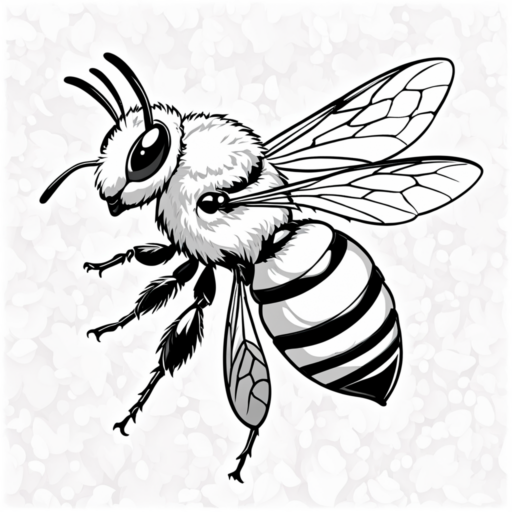How to Know If You’re Ready to Become a Beekeeper: Insights from the Community
If you’re considering becoming a beekeeper, you’re not alone in asking yourself whether you’re truly ready. Beekeeping is both an exciting and challenging journey, and it’s natural to wonder if you have the right knowledge and preparation. To help guide you, I turned to a community of seasoned beekeepers who shared their best advice on the essential steps and considerations for anyone thinking about starting their own hive. Here’s a compilation of insights to help you determine if you’re ready to dive in.
1. Find a Mentor or Join a Beekeeping Group
One of the most common pieces of advice is to find a mentor. Knowledge is built over time, and you’ll likely learn the most through hands-on experience. A mentor can guide you through practical aspects of beekeeping that books or online tutorials may not cover. If a one-on-one mentor isn’t possible, joining a local beekeeping group is an excellent alternative. Many beekeepers share their experiences, answer questions, and offer tips on best practices, which can be incredibly helpful as you start.
Community Insight:
“Find a local beekeeper club and ask for mentorship,” suggests one user. “It’s invaluable to have people nearby who know the local environment and challenges.”
2. Understand the Basics Through Research
Before purchasing your first bees, it’s essential to familiarize yourself with the basics of beekeeping. Resources like online videos, beekeeping books, and forums are great places to start. However, make sure the information is specific to your local climate, as conditions vary depending on your location. As one user wisely pointed out, watching videos from local beekeepers is more relevant than following content made in other regions.
Community Insight:
“Watch videos specific to your climate. If you’re in Ontario, for example, University of Guelph’s videos are a better fit than those from Georgia,” recommends a seasoned beekeeper.
3. Start Small and Be Prepared for Failures
Jumping into beekeeping with multiple hives may sound tempting, but it’s often best to start small. Begin with one or two hives, and take the time to observe and learn. It’s also important to be prepared for setbacks, as colony losses are part of the learning process. Many experienced beekeepers share their first-year struggles, including unexpected die-offs, difficulties with pests, and mistakes in hive management.
Community Insight:
“Start with a nuc or two in the spring. Expect the potential for losses, but you’ll learn quickly and bounce back,” one beekeeper advises. Another says, “I started with five hives and faced a lot of challenges, but now I’m more comfortable with my 10-14 hives.”
4. Gain Practical Experience by Working with Bees
The best way to know if beekeeping is for you is by working with bees directly. Take part in hands-on activities or visit local apiaries to observe and learn. If possible, consider volunteering or working with an established beekeeper for a season to gain direct experience. As one commenter mentioned, “You can read all the books, but nothing beats actual manipulation of the bees.”
Community Insight:
“Go out and inspect hives, learn to recognize health issues, and practice things like feeding your bees early and late in the season,” advises a long-time beekeeper.
5. Prepare for the Physical and Mental Challenges
Beekeeping is a hobby that requires patience and calm. You must be ready to deal with situations like swarming, hive inspections, and dealing with potential stings. Some people find working with bees to be a soothing and rewarding experience, while others may find it more stressful. As one user bluntly put it, “This is not a hobby for the faint-hearted!” If you’re someone who remains calm under pressure, you’re likely to thrive as a beekeeper.
Community Insight:
“Are you calm enough to keep working with your bees even when they’re angry and buzzing around you? This is something you need to consider,” one experienced beekeeper warns.
6. Know the Importance of Pest and Disease Management
Beekeeping is more than just maintaining healthy colonies; it’s also about preventing and managing pests and diseases. Understanding how to identify common issues like mites, mold, and other threats is crucial. It’s also important to stay up-to-date with current treatments, as advice on managing bee health is always evolving.
Community Insight:
“Learn how to inspect your hives every 7-10 days for pests, diseases, and swarming behavior,” suggests a user. “This will help prevent major problems and ensure the longevity of your colonies.”
7. Be Willing to Learn from Mistakes
No beekeeper is perfect, and you’re bound to make mistakes as you start. Whether it’s mismanaging frames, over-smoking your bees, or failing to properly feed them, errors are part of the process. What matters most is how you learn from them. Mistakes often lead to deeper understanding and long-term success.
Community Insight:
“Jump in and make mistakes; just learn from them,” one experienced beekeeper advises. “Beekeeping is a journey, and the lessons you’ll learn are invaluable.”
Conclusion: Are You Ready?
Becoming a beekeeper is both rewarding and challenging. If you’re wondering whether you’re ready, ask yourself these key questions:
- Do I have access to a mentor or local beekeeping group?
- Have I researched the basics and understood the specific needs of my local environment?
- Am I prepared to start small and be patient through setbacks?
- Am I ready to work with bees and stay calm under pressure?
If you can confidently answer “yes” to these questions, you’re likely ready to begin your beekeeping journey. Remember, every beekeeper starts somewhere, and the most important thing is to keep learning and growing. Don’t let fear of mistakes hold you back—embrace the process, and soon enough, you’ll be managing your own hive with confidence.
Happy beekeeping! 🐝
